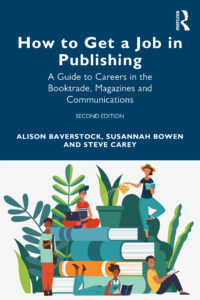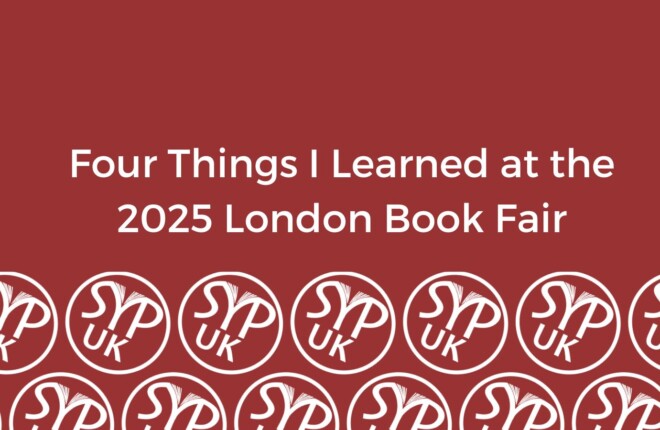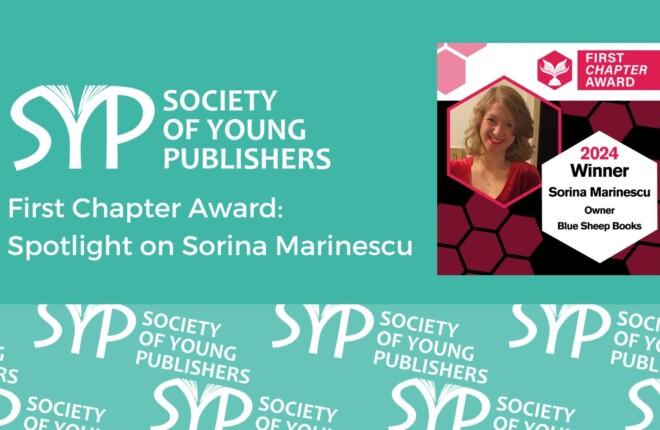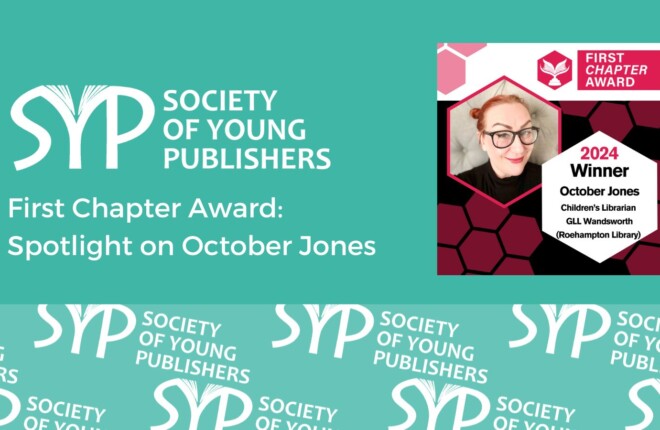
How to Get a Job in Publishing: Advice from Professor and author Alison Baverstock on getting into publishing with no prior experience
Posted on April 10, 2023 in UK

Welcome back to a new year at Press Forward! We are going spend the next few months here focusing on getting into publishing – from job searching to acing that first interview – and are thrilled to be kicking off with an exciting guest piece. Professor Alison Baverstock is the co-author of How to Get a Job in Publishing (Routledge), which just published in its second edition on March 31st. She worked in publishing for many years, and is now Professor of Publishing at Kingston University, and as such is perfectly placed to offer handy tips for anyone looking to get a first placement, internship or job in publishing.
If you are looking for a job in publishing, you know that related work experience enhances your CV and gives you things to talk about at interview. But such placements are often unpaid – and distant. What is more, your ears are probably already full of the helpful advice that ‘publishing is really hard to get into’. We are starting from the premise that it’s even harder to get into if you don’t try!
We recommend that rather than feeling despondent, you look at the skill-set and personal aptitudes required by publishers. We’ve gone into this in some detail in our new book, having consulted widely, but in essence they are flexibility, creativity, an ability to multi-task and get on with others, and to think laterally, spot trends and be ever-mindful of opportunity. The industry tends to offer early opportunities to take responsibility, so those who are comfortable taking calculated risks often find a good fit.
Make the most of transferrable skills
Now look back over your work experience and think about when roles you have undertaken have enabled you to demonstrate the kind of initiative or values being asked for. For example, if you have worked in hospitality or a bar you have experience of dealing with customers, and often ones who are demanding or in a hurry. If you have worked in a shop you have retail experience, and likely been able to spot, and reflect on, buyer behaviour and purchasing patterns. If you have undertaken child-minding or nannying you will have been relied upon and been used to taking responsibility.
Here’s an example. We had a student at Kingston who had spent three years working in the families’ hospitality suite at a major professional sports club. She had experience of looking after, and often managing the at times difficult behaviour, of those who perhaps felt they should be on the field rather than watching, and associated regrets about their own missed opportunities (always heightened under the influence of alcohol). We secured a placement for her with a literary agent on the grounds that she had experience of dealing with people in tense circumstances, and had evidenced long-term stickability – because she had done this for three years.
Every experience in life can be turned to your advantage if thought of as an opportunity to demonstrate your skills.
What if you have no workplace experience?
If you’ve not got much – or any – formal work experience, think about your non-work experiences and how you can use them:
- Do you do volunteer work for a charity or not-for-profit?
- What have you contributed to? Sporting or debating clubs, political parties, religious groups?
- Are you a committee member for any social groups?
- Have you organized any significant events – parties, games, days out?
- What non-professional work have you done – waitering, fast food, tidying up at the golf club?
- Have you won awards at school, university or in other avenues?
- Have you taken a position of responsibility at school or college – for the school council, as a prefect or as a class rep?
All such involvements offer the opportunity to show you have taken the initiative and been a useful and contributing member of society.
Get help in going on placements or attending interviews
Although publishing opportunities around the UK are growing, you may find that many work experience, internships and entry level job opportunities are based in London. Understanding that access to London is costly, and seeking to encourage a more diverse workforce, publisher James Spackman had the brilliant idea of setting up the Spare Room Project, which sees London-based publishers offering free accommodation for a placement or interview in their own homes. This generous idea, for a time kindly supported by Penguin Random House, is available to all publishing entrants who would not otherwise be able to afford to stay. James tells me that those taking advantage have said that some of the most appreciated parts of the scheme have come from the hosting experience. You can find out more about the Spare Room Project here: https://thespareroomproject.co.uk
Find yourself a mentor
Publishers tend to be a generous bunch and keen to encourage others. I remember with particular fondness, when I got my first job in the industry (after working for a marketing agency that supported publishers), getting a call from one of my former clients, who offered me her backup should I need advice in future. I had only to call.
Asking someone to be a mentor is flattering and shows you value their judgement and experience, and you can approach someone directly, mentioning why you admire what they have done. Say what you would like the relationship to look like – maybe a chat a couple of times a year. But if you ask you must also be willing to take a no if they are too busy. Don’t overuse the privilege, and be sure to acknowledge what you receive – through thanks, and doing the same for others in future.
Opportunities within a course
At Kingston University we ask publishers to attend our annual dissertation hang-out, at which students offer a three-minute presentation on their research idea. Publishers and industry supporters attend and offer comments, connections, potential introductions and related ideas. And it’s not just one way. Those who support us tell us that they identify with our students, and remember being at the very start of their own careers. They also seem to enjoy the opportunity to think about the industry as a whole, rather than the day-to-day decision making that occupies most senior personnel.
Be full of ideas
Publishing is an industry of ideas, and publishers are looking for staff who can spot ideas, develop them – and enthuse others. It follows that when considering offering placements or interviews, they routinely look to see what has been specified as ‘interests’. So it’s a good idea to develop something to talk about around which opportunities could be built.
Evidence of unusual hobbies is helpful. If you have a passion for cycling, hill-walking, dolls houses or an unusually broad understanding of cheese, share the information. It might spark sufficient interest to call you in. Make it easy for those reviewing applications to see how interesting you are.
Look for help
If you are lucky enough to get a placement, acknowledge that you will be gaining from learning but don’t be afraid to ask if there is any contribution to travel and food costs. There is also the prospect of financial support from various agencies that seek to widen participation in the industry. The much loved agent Carole Blake’s Open Doors project seeks to do just that and this is in collaboration with the Book Trade Charity which is similarly focussed. The industry is committed to widening participation, so follow up on organisations that say they seek to do just that.
Be memorable in your placement
And when you do find a placement, do it well. You are being taken on in order to learn the ropes and be helpful. Be helpful and remember that even the most basic of tasks can yield valuable information. For example, using the photocopier or scanner can be more interesting if you pay attention to what you are copying.
Be consistently willing, helpful, compliant. One of our students left a pot-plant behind her, with her name on it, to be looked after by the staff in future – and last we heard ‘Lisa’ was still flourishing at Blake Friedmann.
Above all, don’t give up
The reason why widening participation is such a buzz phrase is that in addition to promoting natural justice, it has commercial benefits for the industry. The more we understand the full range of the population we want to approach, the more successful as an industry we will be. Reading benefits absolutely everyone, and we can only reach all if we are ourselves diverse.

The second edition of ‘How to get a job in publishing’ (Routledge) by Alison Baverstock, Susannah Bowen and Steve Carey is published during the London Book Fair. A launch party will be held on Wednesday 19th April, at the stand of the Association for Publishing Education, 7B43 from 12.30-1.15. The passion we will share with you that day is our love of Crosstown hand-crafted doughnuts. Do join us!




 Listen to the podcast
Listen to the podcast  Explore the Youtube channel
Explore the Youtube channel